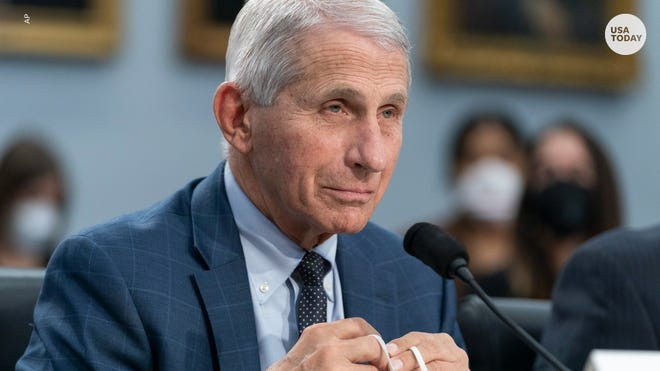Sept. 27, 2024 – In a breakthrough for people living with schizophrenia, the FDA has approved a new oral medication for adults. Unlike traditional antipsychotic drugs, the medication, which will be marketed under the name Cobenfy, targets a different pathway in the brain, offering new hope for treatment.
Schizophrenia is a serious mental disorder that affects about 1% of people in the U.S. and around 24 million worldwide. It causes people to struggle with distinguishing reality from imagination, and symptoms typically appear in the late teens or early adulthood. The condition affects how people think, feel, and behave, impacting work, education, relationships, and overall functioning. People with schizophrenia are 2 to 3 times more likely to die younger, with about 5% dying by suicide.
"This is the first new approach to schizophrenia treatment in decades, offering an alternative to the standard medications that many patients have used," said Tiffany Farchione, MD, director of the Division of Psychiatry at the FDA’s Center for Drug Evaluation and Research.
The active ingredients in Cobenfy are xanomeline and trospium chloride. The drug is designed to help reduce symptoms such as hearing voices, delusions, disorganized speech, lack of motivation, social withdrawal, and difficulty with thinking, memory, and decision-making. Unlike older drugs, which target dopamine receptors, Cobenfy works on cholinergic receptors, providing a new option for people who haven't found relief or who had harsh side effects from other treatments.
Cobenfy will be available in oral capsules. Its approval was based on a successful phase III clinical trial whose results were published in JAMA Psychiatry in May. The study showed that Cobenfy eased schizophrenia symptoms and was well-tolerated, compared to a placebo. Notably, it didn’t cause common side effects like weight gain, drowsiness, or movement disorders, which are often linked to traditional treatments.
Chris Boerner, PhD, the CEO of Bristol Myers Squibb, the company behind Cobenfy, sees this approval as a significant milestone.
"After more than 30 years, there’s now a completely new approach to treating schizophrenia that could change the way the condition is managed,” he said.
Cobenfy doesn’t carry the usual warnings that come with antipsychotic drugs, but some side effects include nausea, upset stomach, constipation, diarrhea, stomach pain, high blood pressure, increased heart rate, and dizziness. It may also make it hard to empty your bladder and cause swelling of the face and lips. Patients should consult their doctor if they have liver, kidney, or eye problems or a history of allergic reactions to the medication.
It’s not yet known if Cobenfy can harm an unborn baby or pass into breast milk. Women who are pregnant, planning to become pregnant, or breastfeeding should inform their doctor before starting treatment.
A New Era in Schizophrenia Treatment
No new treatments for schizophrenia have been approved in nearly three decades, but that changed on Sept. 26, when the U.S. Food and Drug Administration (FDA) approved Cobenfy for the psychiatric disorder. Developed by Karuna Therapeutics, which was subsequently acquired by Bristol Myers Squibb, the drug works in an entirely different way from existing medications for schizophrenia, which is building excitement and enthusiasm among doctors and patients alike.
While schizophrenia treatments primarily target the dopamine neurotransmitter system in the brain, Cobenfy goes after a different one, the cholinergic system, through muscarinic receptors. Decades ago, scientists at Eli Lilly had studied the muscarinic system as a possible treatment for Alzheimer’s disease, since manipulating it seemed to reduce some of the symptoms of Alzheimer’s-related psychosis that some patients develop. The company's researchers also serendipitously learned that a compound they developed to activate the system also improved symptoms of schizophrenia. But cells in many parts of the body—the brain, but also the bladder, gut, salivary glands, eyes, and heart—contain receptors for the muscarinic system, which meant it was challenging to selectively target just those in the brain and not elsewhere. Because the compound, called xanomeline, caused wide-ranging side effects, Lilly's researchers shelved further study on it.
Andrew Miller, co-founder of Karuna, became intrigued by this research and tried to figure out how to activate the muscarinic system in the brain while tamping it down elsewhere in the body. He and his team tested 7,000 compounds and eventually combined xanomeline with a drug that had been approved by the FDA in the 1970s for treating overactive bladder, to suppress muscarinic activity elsewhere in the body. "It's a pretty out-of-the-box approach," says Miller. The overactive bladder drug "has nothing to do with psychiatry," he said. Combining it with a serendipitous discovery of xanomeline "didn't fit the traditional model of innovative drug discovery." But it worked.
In a study the company published last December in the journal Lancet, the researchers reported that the combination—now called Cobenfy but then called KarXT—helped to significantly reduce symptoms of schizophrenia such as hallucinations, delusions, paranoia, social withdrawal, and a loss of motivation compared to a placebo. Those data were part of the application that the company submitted to the FDA for approval.
Bristol Myers Squibb acquired Karuna in 2023 largely based on these encouraging results. “When we looked at the available neuroscience and neuropsychiatric assets out there, we didn’t want the next dopamine agonist or antagonist in the marketplace, which all of the physicians have [already] seen,” says Adam Lenkowsky, chief commercialization officer for Bristol Myers Squibb. “We wanted a truly revolutionary asset, one with a different mechanism: a first-in-class, best-in-category asset we think could transform the space.”
Samit Hirawat, chief medical officer at Bristol Myers Squibb, says that not only does Cobenfy address schizophrenia in an entirely new way, but its approach could be used for other neurological conditions as well. "The breadth of applicability of this medicine is what attracted us.”
Dr. Rishi Kakar, chief scientific officer at Segal Trials who led several studies on Cobenfy, says that “the uniqueness of the mechanism of action differentiated this medication from everything else we had so far, and truly caught my eye right off the bat.” Kakar—a psychiatrist who treats patients as well as conducts research—says that historically, only about 40% of people with schizophrenia respond to dopamine-based treatments, and the other 60% who may respond often stop taking their medications because of intolerable side effects, which can include uncontrolled muscle movements, dizziness, fainting, and weight gain.
Clinical Trials and Results
The trials included patients who were hospitalized for acute schizophrenia and randomly assigned to receive Cobenfy—as a pill taken twice a day—or a placebo for five weeks. In order to reflect the real-world population of patients, some had been taking existing medications but stopped because of the side effects, or weren’t compliant. All patients went through a wash-out period of up to two weeks to ensure any measurements of their outcomes during the study were due solely to Cobenfy or placebo. Patients received escalating doses of the drug, and prescribing doctors were able to adjust dosages for their patients depending on their symptoms.
The studies documented a significant reduction in overall symptoms of schizophrenia in the patients receiving Cobenfy compared to placebo. “My viewpoint is that [this difference] can mean someone can potentially carry on a better life by having symptom control,” says Kakar.
The FDA approved Cobenfy as a monotherapy—meaning it is meant to be taken alone, without other medications—but more studies will be needed to see how the medication works in combination with existing treatments, and what the benefits and risks are of combining them. “I think many clinicians are going to try this as a first-time pharmacological option, because they will find that the reduction in symptoms is fairly robust,” says Kakar. “From what I saw, it has true value for the unmet need we have.” Lenkowsky says Bristol Myers Squibb is conducting a trial studying Cobenfy in combination with dopamine-based medications that will yield results in about a year.
Side Effects and Future Applications
In contrast to the existing dopamine-based treatments, the side effects of Cobenfy reported by the volunteers in the studies were mostly mild to moderate, involving nausea and gastrointestinal distress, and tended to lessen with time. The label also alerts patients that the drug is associated with urinary retention, increased heart rate and swelling in the face in rare cases; the medication is not recommended for people with a history of liver or kidney disorders.
Bristol Myers Squibb is continuing to study the drug for its longer term effects, as well as to understand and potentially guide doctors on how to adjust doses for patients as their symptoms change over time. The success in schizophrenia patients may lead to other uses of the drug in other conditions as well. “Neuropsychiatry is at the cusp of bringing an explosion of new medicines, and Cobenfy is the start of a pipeline of potential products,” says Hirawat. The company is currently studying the drug in Alzheimer’s-related psychosis, and next year plans to start late-stage trials investigating whether it can improve bipolar mania, Alzheimer’s-associated agitation, and Alzheimer’s-associated cognitive impairment. In 2027, the company hopes to begin trials in people with autism.
The Cost of Hope
How much will Cobenfy cost?
According to a Bristol Myers Squibb spokesperson, the wholesale cost for a month's supply will be $1,850. Depending on people's insurance coverage, that cost could be lower for individual patients. Bristol Myers Squibb estimates that 80% of people with schizophrenia in the U.S. have insurance coverage either through Medicare or Medicaid.

















